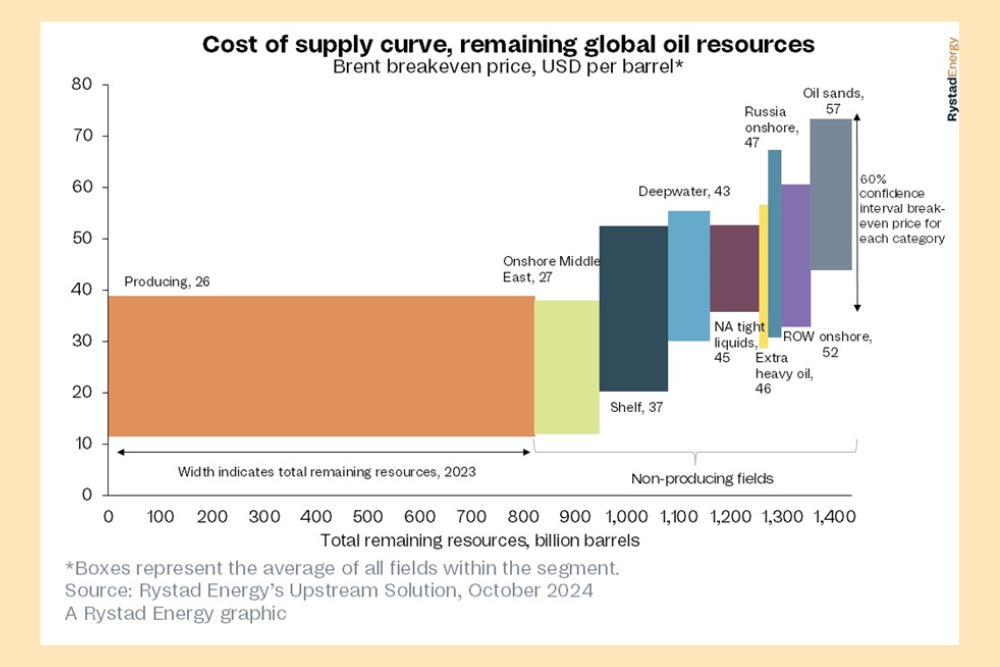
Rystad Energy’s latest research reveals that global recoverable oil reserves have remained largely stable at approximately 1,500 billion barrels, marking a slight decrease of 52 billion barrels from the previous year’s analysis.
This reduction is attributed to a combination of factors, including 30 billion barrels consumed through production and 22 billion barrels due to downward adjustments in contingent resources from discoveries.
The study highlights significant regional shifts in oil reserves.
Saudi Arabia experienced the largest downward revision as development priorities moved from offshore expansion to onshore infill drilling.
In contrast, Argentina saw a notable increase of four billion barrels, primarily due to the derisking of shale projects in the Vaca Muerta formation.
Rystad Energy’s Head of Analysis, Per Magnus Nysveen, emphasised the critical role of electric vehicles in managing future oil demand.
“The world’s remaining oil reserves are insufficient to support oil demand if there is no transition to electric vehicles. Attempts to limit the supply of oil will have hardly any effect on limiting global warming. Instead, the only feasible way of keeping global temperatures rising less than 2.0 degrees Celsius is to ensure fast electrification of road transportation,” Nysveen stated.
The report presents a theoretical “high case” scenario where oil production would peak around 2035 at 120 million barrels per day, subsequently declining to 85 million barrels per day by 2050.
However, this scenario assumes oil demand remains unaffected by the energy transition, with prices potentially exceeding $100 per barrel.
Notably, Rystad Energy’s estimates of total recoverable oil resources have decreased by 700 billion barrels since 2019, primarily due to reduced exploration activities.
This decline is largely attributed to investor concerns about stranded assets resulting from vehicle electrification and anticipated decreases in oil demand and prices.
The research also reveals a discrepancy between Rystad’s bottom-up analysis and officially reported figures.
OPEC members are estimated to hold 657 billion barrels of recoverable oil, significantly lower than the 1,215 billion barrels reported in the BP Statistical Review 2022.
As the global energy landscape continues to evolve, these findings underscore the importance of balancing oil production with the transition to more sustainable energy sources, particularly in the transportation sector.







